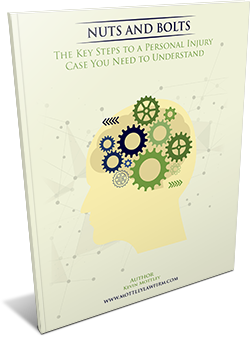You’re Hit by a Drunk Driver
As mentioned above, being struck by a drunk driver is one of the most common car accident scenarios that may justify punitive damages. Virginia Code § 8.01-44.5 states that if the driver who caused the accident had a blood alcohol concentration (BAC) of at least 0.15, victims may claim punitive damages. If the at-fault party unreasonably refused to submit to a breathalyzer or other BAC test, the courts may include this evidence to justify punitive damages.
You’re the Victim of Excessive Speeding and Reckless Driving
When you’re injured by a speeding driver, a judge or jury evaluates these situations carefully. A simple speeding ticket may not be enough to warrant punitive damages, but reckless driving might. Code of Virginia § 46.2-862 indicates that a person is guilty of reckless driving if they exceed the speed limit by at least 20 miles per hour. Driving over 85 miles per hour may also count as reckless driving, regardless of the posted speed limit.
Willful and Wanton Negligence
In a more general sense, willful and wanton negligence may lead to punitive damages.
- Simple negligence is the failure to use ordinary care.
- Gross negligence involves a reckless disregard of caution but lacks the knowledge of expected consequences.
- Willful and wanton negligence is consciously acting in a way that disregards the rights or safety of others, knowing that the behavior is likely to injure someone.
For example, if a person purposely drives the wrong way down a highway, the courts may consider the act willful and wanton negligence, as this behavior goes beyond simple or gross negligence.
However, leaving the scene after a hit-and-run car accident may not, in and of itself, qualify for punitive damages.
Suing the Commonwealth of Virginia
The Virginia Tort Claims Act (VTCA) notes that the Commonwealth of Virginia isn’t liable for punitive damages in personal injury lawsuits. You can still sue the state for up to $100,000 in damages in certain circumstances—if a government employee crashes into you, for instance—but the courts won’t award punitive damages in such cases.
How Punitive Damages Are Calculated in Virginia Car Crashes
State law places a maximum cap of $350,000 on punitive damages in personal injury claims. The finder of fact, normally the judge or jury, decides on the amount awarded based on the egregiousness of the wanton recklessness. They consider what amount is needed to appropriately punish the level of wrongdoing and deter others from doing the same. The finder of fact will also consider the degree of damage and whether the reckless conduct was preventable.
There is no exact formula for calculating punitive damages. Our legal team might employ a strategy of making a strong argument for increasing this amount as close as possible to the maximum allowable.
Importance of Skilled Legal Representation From The Mottley Law Firm in Your Personal Injury Case
Punitive damages can represent a significant portion of a car accident claim settlement, but as you can see, they’re not allowable in every case. When you arrange for a consultation with our team, we’ll use our knowledge to examine the evidence carefully and explore your legal solutions. Proving negligence in car accidents is a detailed process, especially when insurance companies try to minimize their liability. Our attorneys will also assess whether your claim is eligible for punitive damages and what specific case law may be relevant in developing your legal strategy.



